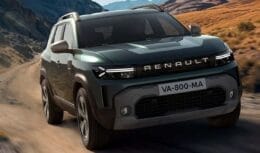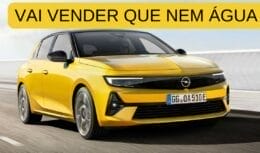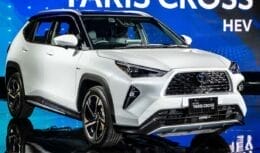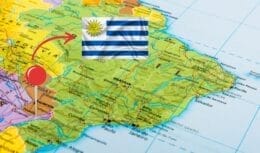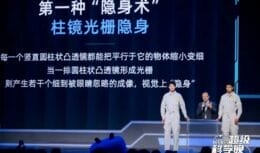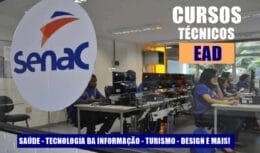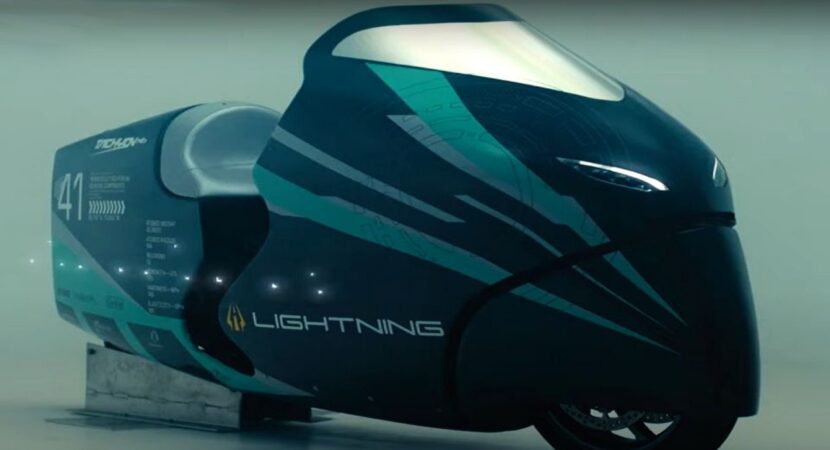
North American company partnered with CBMM for the development of an electric motorcycle that uses niobium from Brazil in various components.
The long-awaited electric motorcycle that uses niobium from Brazil to exceed an incredible 400 km/h, finally had its first images released and some information revealed. The vehicle is the result of a partnership between the North American Lightining Motorcycles and the Brazilian Metallurgy and Mining Company (CBMM). The model, called Tachyon Nb, appeared in a teaser.
Electric motorcycle project focuses on breaking the 400 km/h barrier
The main technical details about the niobium electric motorcycle in Brazil have not yet been disclosed, such as power, maximum speed and battery performance. According to CBMM, more information about the vehicle will be announced soon.
In the published material, the company responsible for producing electric motorcycles states that niobium from Brazil was used in several components, including disc brakes, chassis and charging module, among others. As announced earlier this year, the project focuses on taking the electric motorcycle to break the 400 km/h barrier.
In 2015, the LS-218 model, also from the automaker, reached the mark of 218,637 miles, equivalent to 351,787 km/h, in the Bonneville salt desert, in the United States, earning the position in the ranking of the most electric motorcycle in production world's fastest. In the near future, we will be able to see Brazil's niobium vehicle in action at the same location.
Niobium from Brazil could revolutionize the electric motorcycle market
According to CBMM and Lightning niobium from Brazil can maximize the performance and speed of these vehicles.
According to the CEO and founder of Lightning Motorcycles, Richard Hatfield, when he closed the partnership with CBMM, reducing the weight of the vehicle was something crucial to make it possible to obtain high performance and, therefore, the company is already using some applications of niobium. The metal is considered a component improver, making steel even lighter and more resistant.
Its name originates from a Greek goddess, Niobe, daughter of Tantalus, and is element number 41 on the periodic table. In addition to Lightining, CBMM also has another electric motorcycle under development with the Chinese Horwin, which foresees the use of Brazilian niobium for ultra-fast charging of electric motorcycles.
Partnership between CBMM and Horwin
The electric motorcycle scenario may soon change with the arrival of CBMM niobium ultra-fast recharge batteries which are already in the test phase in Brazil.
Horwin, after the announcement of its factory for the production of electric motorcycles in Manaus, closed a partnership with CBMM, which generates the necessary material for the production of niobium batteries in Araxá, in the Midwest of Minas Gerais, and plans to deliver motorcycles electric rechargeable in up to 10 minutes.
According to the company's battery program manager, Rogério Marques Ribas, the company entered into a partnership with the Chinese company and, together, they are developing two electric demonstration motorcycles with Brazilian niobium.
Horwin has already announced that everything is in line with pre-established plans and plans to use these niobium batteries in its production line at the Manaus plant.
Niobium does not replace lithium in batteries, however it serves as a battery booster. The manager claims that almost 95% of the technologies in smartphones, computers and electric cars are lithium batteries.


